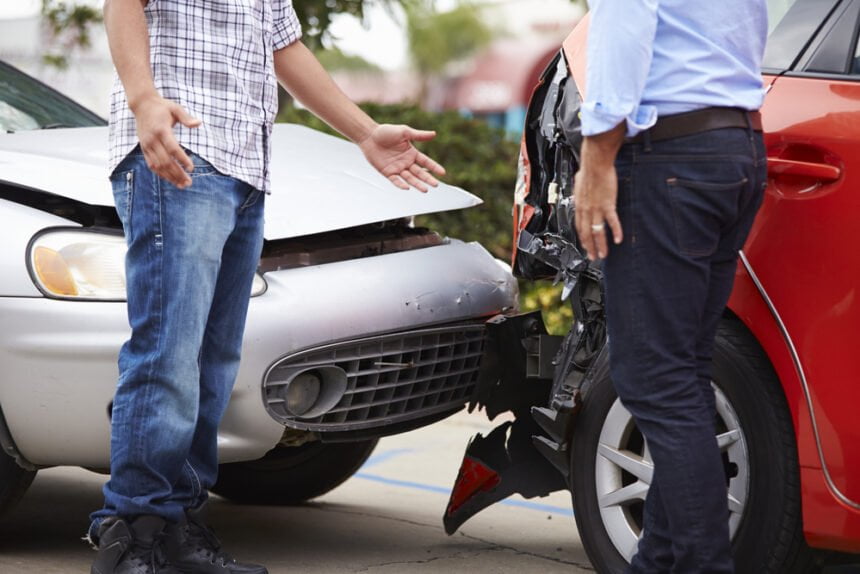Car accidents are common causes of injuries in the United States. ValuePenguin reports that 2.3 million people were injured in non-fatal car accidents in 2020. Of course, this was the first year of the pandemic when many people were staying at home, so the number of car accident injuries is actually higher most years.
Fortunately, there are a variety of ways to pay for medical bills after getting in a car accident. One option is to pay for them with your settlement from a personal injury lawsuit.
Personal Injury Lawsuits Can Help Cover Your Medical Bills
Personal injury and car accidents are major concerns. Medical bills can quickly pile up, and in most cases, they must be paid from your settlement award after winning or settling a personal injury case.
Your settlement can compensate for healthcare expenses, also known as “special damages” or “economic damages.” Use the funds from your settlement to pay off these expenses. The settlement is designed to cover your losses, including time off work and lost earning potential due to a disabling condition.
Unfortunately, there is a harsh reality that many people don’t want to discuss. Your ability to pay off your medical debts will depend on whether you can win your lawsuit or at least get a favorable settlement.
You will have a better chance of winning if you know about the concepts that may affect your ability to get a good outcome. This includes learning about comparative negligence. In the meantime, it is important to remember that it can take a long time to get a settlement, so you should follow these tips to cover your medical bills after suffering a car accident.
Personal injury cases are common in the legal system, often involving complex legal principles and arguments. One such principle that is frequently used is comparative negligence. Keep reading to learn more about comparative negligence in injury cases, explaining what it is, how it works, and how it can affect the outcome of a case.
What is Comparative Negligence?
Comparative negligence is a legal principle that allows for allocating fault and responsibility between multiple parties involved in an accident. In an injury case, the plaintiff (the person injured) may be partially responsible for the accident that caused their injuries. Comparative negligence allows the court to determine the degree of fault of each party involved in the accident and allocate responsibility accordingly.
How Does Comparative Negligence Work?
Comparative negligence assigns a percentage of fault to each party involved in the accident. The court will consider the actions of all parties involved, including the plaintiff, in determining each party’s degree of fault. The percentage of fault assigned to each party will then be used to determine the number of damages that each party is responsible for.
Comparative negligence is divided into two categories: basic comparative negligence and amended comparative negligence. In pure comparative negligence, the plaintiff’s damages are reduced by their percentage of fault, regardless of how high that percentage may be. For example, if the plaintiff is found to be 90% at fault for their injuries, they may only recover 10% of the damages awarded.
In modified comparative negligence, the plaintiff’s damages are reduced by their percentage of fault, but only up to a certain point. If the plaintiff’s percentage of fault exceeds a certain threshold, usually 50%, they may be barred from recovering any damages. For example, if the plaintiff is found to be 51% at fault for their injuries, they may not be able to recover any damages.
How Does Comparative Negligence Affect Personal Injury Cases?
The result of a case involving personal harm may be significantly impacted by comparative negligence. If the plaintiff is found to be partially at fault for their injuries, their damages may be reduced or eliminated. This means that it is essential for plaintiffs to prove that they were not at fault for their injuries or that their degree of responsibility was minimal.
In addition to affecting the number of damages awarded, comparative negligence can also affect the outcome of a case in other ways. For example, if the plaintiff is found to be partially at fault for their injuries, the defendant may be more likely to settle the case out of court rather than risk a trial. This is because the defendant may be concerned that a jury will assign them a significant percentage of fault, resulting in a high damages award.
Furthermore, comparative negligence can also affect how evidence is presented in an injury case. The plaintiff and the defendant must present evidence to support their arguments about who was at fault for the injuries. This can include witness testimony, medical records, accident reports, and other evidence. The court will consider all this evidence in determining each party’s fault percentage.
Conclusion
Comparative negligence is an essential legal principle frequently used in personal injury cases. It allows for allocating fault and responsibility between multiple parties involved in an accident. Understanding how comparative negligence works is essential for plaintiffs and defendants in personal injury cases, as it can significantly impact the case outcome. Plaintiffs found to be partially at fault for their injuries may have their damages reduced or eliminated, while defendants may be more likely to settle the case out of court.







